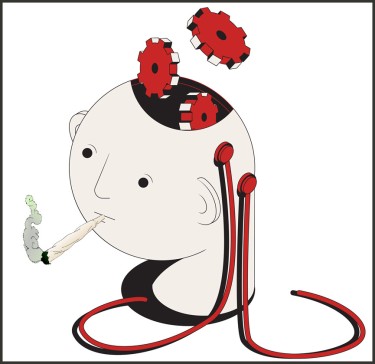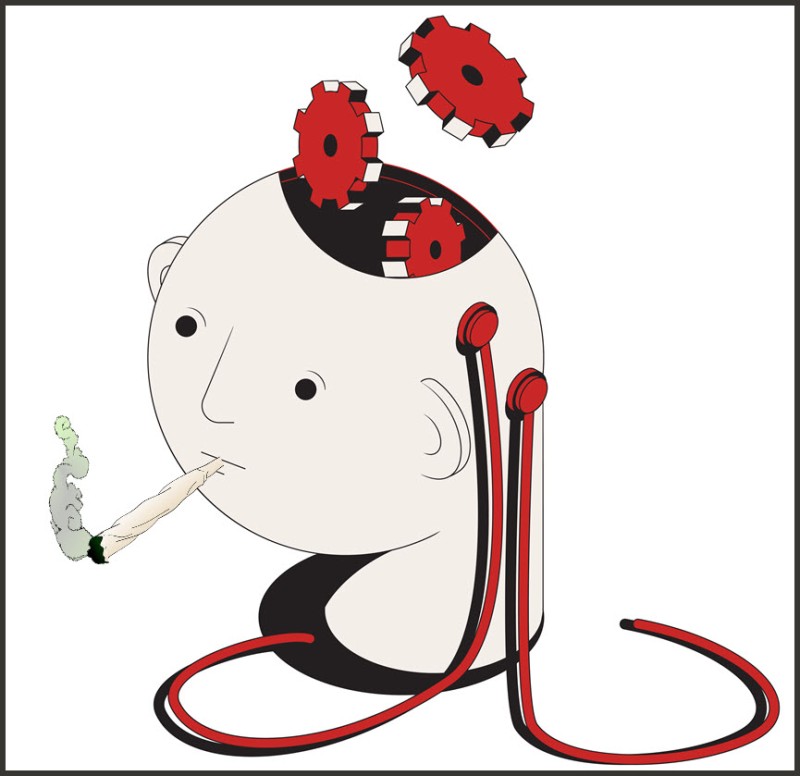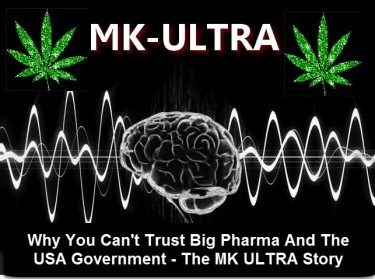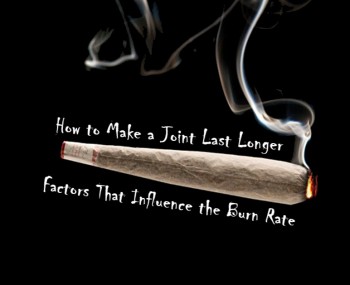
"Is it possible to reprogram your mind with cannabis?" is an intriguing and thought-provoking topic that delves into the potential of using cannabis and mindfulness to break free from the invisible shackles that bind us to pre-established behavioral patterns. These patterns, often instilled by external forces like family, government, or society, hinder us from fully embracing and expressing our true selves.
The story of Cathy O'Brien, a woman who claimed to be a victim of the infamous MK-Ultra mind control experiments, serves as an interesting case study. O'Brien believed that cannabis played a significant role in helping her resist and break free from the manipulative control that had been imposed on her.
Hidden subconscious programming is a phenomenon that affects us all. Throughout our lives, we are bombarded with messages and expectations from various sources, shaping our thoughts, beliefs, and actions, often without our conscious awareness. While some of these influences may be benign, others can be toxic, limiting our personal growth and happiness.
Reprogramming our minds to align with our true desires and aspirations can be a daunting task, but it is essential to lead a fulfilling and purposeful life. Uncovering and understanding the source of these subconscious programs is the first step towards taking control of our thoughts and actions, and ultimately, our destiny. In the following sections, we will explore the potential of cannabis as a tool to aid in this transformative process.
What are the things you do that you’re not aware of?
In our quest to uncover hidden programming, it's crucial to identify and acknowledge the aspects of our behavior that operate on autopilot, often without our conscious awareness. These are the deeply ingrained beliefs, biases, and responses that have been imparted to us by external sources, such as our upbringing, cultural environment, education, and the media. The challenge lies in recognizing these subtle influences, as they are so closely intertwined with our identity that they seem like a natural part of who we are.
Our political and ideological leanings, for instance, are often shaped by the values and opinions of our family, friends, and community. We may not realize that our stance on certain issues is not necessarily a product of our independent thought, but rather a reflection of the collective beliefs of our social circle.
Similarly, our reactions to specific people, places, or events can be dictated by subconscious programming. For example, we may feel an inexplicable aversion or attraction to someone without fully understanding why. These seemingly irrational responses may stem from our past experiences or the conditioning we've received from our environment.
Our concept of "how things work" and, more importantly, "how things ought to work" is also heavily influenced by external factors. Society instills in us certain expectations and norms that can limit our ability to think critically and imagine alternative possibilities. Consequently, our perspective on issues such as gender roles, work-life balance.
Operation MindFuck!
The War on Drugs serves as a prime example of mass unconscious programming, perpetuated by the government and other powerful entities. This far-reaching campaign has successfully implanted fear and stigma around drugs, leading to widespread ignorance and misunderstanding about their potential benefits.
The government achieved this by falsifying studies, spreading false narratives, and demonizing users through mass programming campaigns like D.A.R.E. These efforts often backfired, ironically leading more kids to experiment with drugs. The narrative that drugs are bad and lead to irreversible brain damage or insanity has been deeply ingrained in society's consciousness.
However, recent research tells a different story. Psychedelics, for instance, have been found to help individuals resolve hidden traumas and promote mental health, rather than causing harm. This revelation is problematic for the pharmaceutical industry, which profits off the continued suppression and demonization of these substances. The Controlled Substances Act is a prime example of the industry's attempt to monopolize the drug trade and maintain control over the narrative.
The War on Drugs demonstrates how external forces can shape our beliefs and expectations, steering us away from experiences that could potentially benefit us. The challenge lies in untangling ourselves from the web of lies and deception spun by these faux authorities.
To begin the process of deprogramming, we must question the information we've been fed and seek out alternative perspectives. In doing so, we might discover that our deeply held beliefs about drugs and their dangers have been created through falsehood and deceptive tactics.
However, this is only one aspect.
The truth of the matter is that if we look at platforms like Twitter - people are wearing their internal bias on their sleeves, and projecting it out onto the world, expecting others to follow suit.
Untangle your MindControl
Deprogramming and unplugging from the system's narratives is essential in today's world, where corruption has seeped into the very fabric of our society. Politics has become dominated by money, with a select few entities—corporations and organizations—aligning their interests to prioritize profits above all else.
This phenomenon can be aptly described as "Viral Capitalism" or "Zombie Capitalism." The relentless pursuit of profit margins supersedes our survival instincts, blinding those at the helm with their own hubris and greed. This shortsightedness is prevalent in various industries.
For example, there is hardly any pharmaceutical company that hasn't gamed the system in one way or another. Major corporations invest billions of dollars in raising awareness of climate change, while their corporate waste contributes significantly to ecological contamination and the destruction of our ecosystems.
Instead of promoting sustainable farming practices and retraining consumer behavior, they push processed foods like Beyond Meat. The harsh reality is that the system can no longer be trusted. The only reliable sources of information are independent voices immersed in the very trenches of the ideological concepts we support.
However, the ultimate goal is to learn how to think for ourselves, which requires deprogramming. By dismantling the false narratives and beliefs we've been conditioned to accept, we can take back control of our own minds and make informed decisions based on our values and experiences and critical thinking. This journey of deprogramming is not just about rejecting external influences, but also about cultivating self-awareness, questioning assumptions, and fostering intellectual curiosity.
As we gradually untangle ourselves from the web of misinformation and deception, we become better equipped to discern truth from falsehood. We must actively seek out diverse perspectives, engage in open-minded discussions, and be willing to adjust our viewpoints when presented with new evidence. It is through this process of constant learning and self-reflection that we can cultivate a more nuanced understanding of the world around us and make choices that align with our authentic selves.
Deprogramming is an ongoing endeavor that enables us to break free from the constraints of societal conditioning, allowing us to reclaim our autonomy and forge our unique path in life. By acknowledging and challenging the myriad of subconscious programming that has shaped our thoughts and behaviors, we can begin to dismantle the oppressive structures that have kept us bound to a reality dictated by the few.
Ultimately, the power to change lies within each of us. As we shed the layers of manipulation and control that have permeated our lives, we can rise above the corrupted system and strive for a more equitable and just world, where individual freedom and collective well-being are valued above the relentless pursuit of profit.
How to Deprogram using Cannabis and Mindfulness
Embracing the power of cannabis and mindfulness to embark on your deprogramming journey is a transformative process that will lead you to discover hidden parts of yourself and expand your self-awareness. The first step is to let go of the idea that you have all the answers and be open to the possibility of being wrong. Adopting a mindset of continuous learning and growth is essential for true personal development.
When you find yourself triggered by external events or interactions, take a moment to pause, light up a joint or take a hit, and then close your eyes. Start by identifying the sensations and emotions that are arising within you. Locate them in your body and try to describe their qualities.
Next, ask yourself when you last experienced these feelings. Allow your unconscious mind to guide you to a memory or situation where you felt the same way. Explore the triggers and underlying reasons for your emotions in that moment. Once you have a deeper understanding, move on to the next question: "When was the first time I felt like this?"
Again, give your unconscious mind the space to provide insight. Delve into the past and examine the origins of your emotional response. By doing so, you create an opportunity to heal and gain perspective on these past experiences.
In this state of introspection, you can even engage in dialogue with the memories or representations that appear to you. Surprisingly, they often have valuable insights to share.
This process of self-exploration is by no means easy. It requires dedication, patience, and perseverance. However, it is through this journey of self-discovery that you can gradually untangle yourself from the emotional triggers that keep you trapped in unconscious patterns of behavior. By using cannabis and mindfulness as tools to delve into your past, you can bring unresolved issues to the surface, gain clarity, and ultimately, heal.
As you continue to practice this technique, you will find that your emotional reactions to external stimuli start to change. You will become more resilient, more grounded, and better equipped to handle life's challenges. Moreover, you will develop a deeper understanding of yourself and the world around you, allowing you to make conscious choices that are aligned with your true values and desires.
By actively working to deprogram your mind with the help of cannabis and mindfulness, you empower yourself to break free from the societal narratives and external influences that have held you back. You can take control of your own thoughts and emotions, giving yourself the freedom to live an authentic life that is true to your innermost nature.
So, embark on this transformative journey and begin to reprogram your mind with cannabis and mindfulness. Embrace the power of self-awareness and healing as you work through past traumas and emotional triggers, and experience the profound shifts that occur within you. Remember, the journey may be long and challenging, but the rewards of self-discovery, personal growth, and inner peace are truly priceless.







